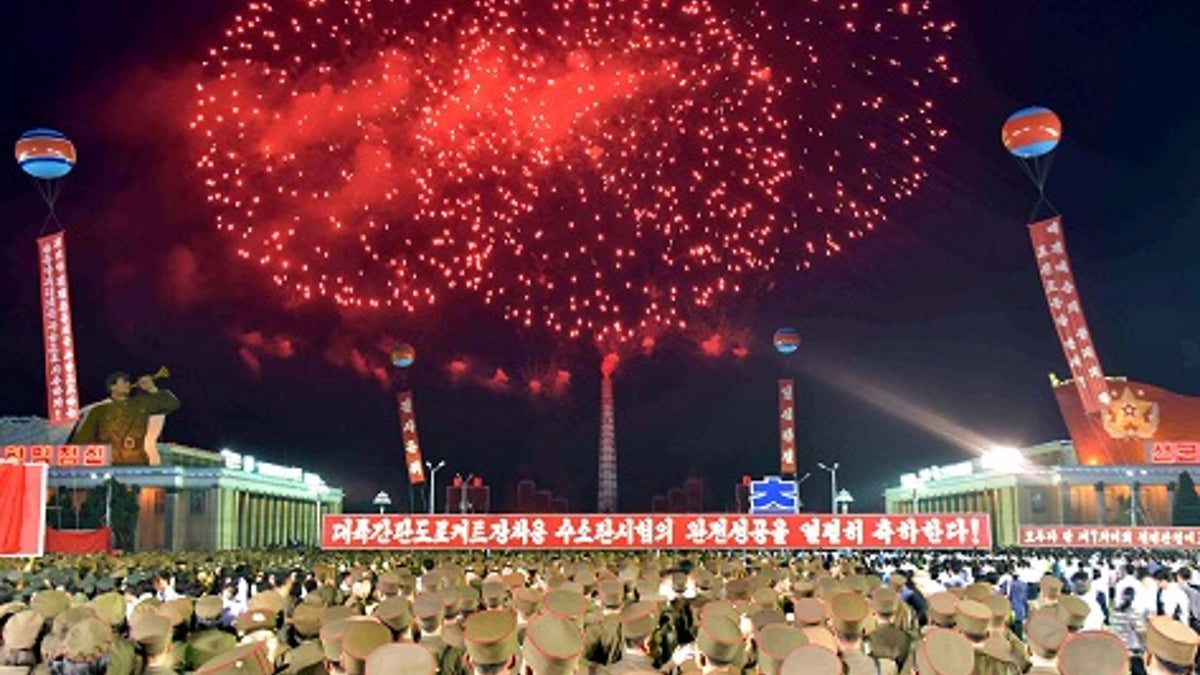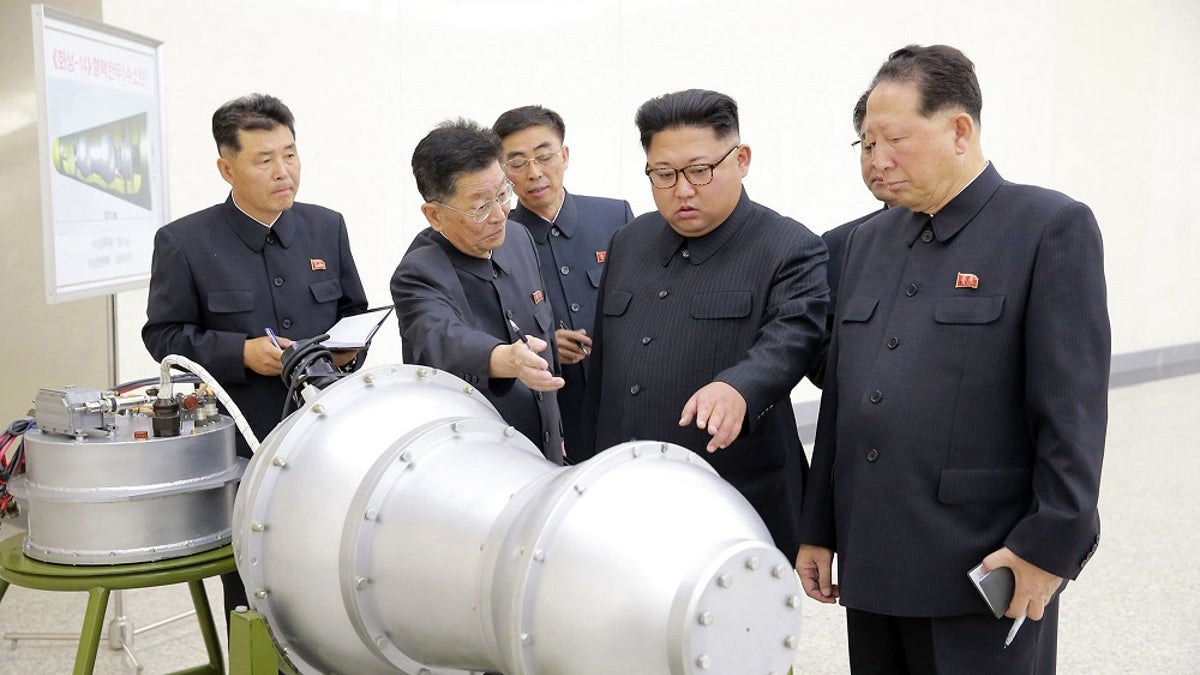Reports of 'unusual' wartime preparations in North Korea
Greg Palkot reports on the alleged evacuation drills in the region.
Radiation emanating from North Korea’s overused, crumbling nuclear test region could reportedly threaten northern Japan, as strengthening winds from the northwest blow the radiation across the Sea of Japan.
Dr. Joel Myers, the founder and chairman of AccuWeather, said next week's forecast could spread lingering radiation and threaten nearby countries with contamination from the Hermit Kingdom’s Sept. 3 nuke test.
“As winds pick up out of the northwest over the next few days, it is possible that any radiation that leaks from the site [where the nuclear test took place] could be carried and dispersed across the Sea of Japan and even to the Japanese islands,” Myers said.
The AccuWeather chairman said he believed the rogue regime purposely tested nuclear weapons on days when the wind was moderate.
NORTH KOREA SLAMS ‘FALSE’ NUCLEAR TEST SITE DEATHS REPORT
"One might speculate that North Korea conducted these nuclear tests purposefully on days with light wind conditions, so that any resulting radiation leakage would remain within its borders and would go undetected internationally,” Myers said.

Pyongyang celebrated a successful hydrostatic test. (Reuters)
Myers noted, however, that North Korea’s luck may have run out.
"We know from other news reports that there has been an accident at the nuclear test site, and the situation that North Korea may have anticipated with radiation being contained within North Korea has changed,” Myers said.
Japanese TV reported the nuclear site, Punggye-ri, had destabilized following Pyongyang's most recent test, and the site’s tunnels reportedly collapsed on Oct. 10 killing hundreds of people.
North Korea denied the report.
TRUMP UNLEASHES NEW THREAT ON NORTH KOREA IN FOX NEWS INTERVIEW
AccuWeather reported North Korean soldiers and families were exposed to radiation following the tunnel’s collapse.

South Korean officials reported Kim Jong Un was possibly planning a new missile test. (AP)
Myers said the radiation could travel to the Japanese island of Hokkaido and far-northern Honshu -- and possibly farther south by the weekend.
A week after the Sept. 3 nuke test, South Korea's nuclear safety agency said it found traces of xenon gas, a radionuclide, in the environment, Yonhap News Agency reported.
Meanwhile, South Korean officials reported detecting “active movement” at a Pyongyang missile research facility that indicated Kim Jong Un’s regime may be planning a new missile test, Yonhap News Agency reported. Punggye-ri test site’s tunnel 3 was also reportedly ready to conduct another nuclear test despite reports questioning its stability.
President Trump is set to leave for his five-nation Asia tour on Friday, stopping in Japan, South Korea, China, Vietnam and Philippines — his first trip to the region since taking office. He is expected to be in South Korea on Tuesday.
Fox News' Katherine Lam and Travis Fedschun contributed to this report.









































